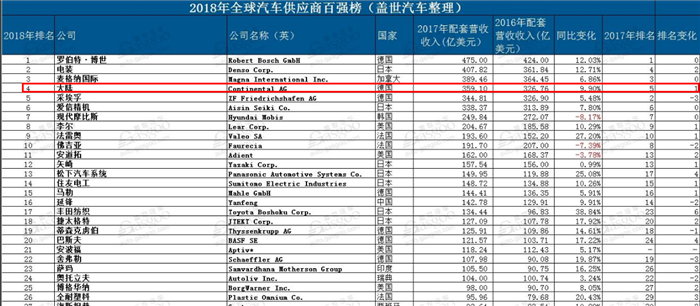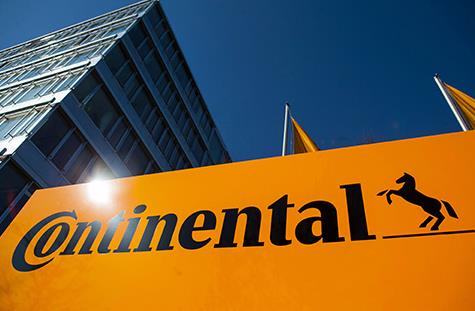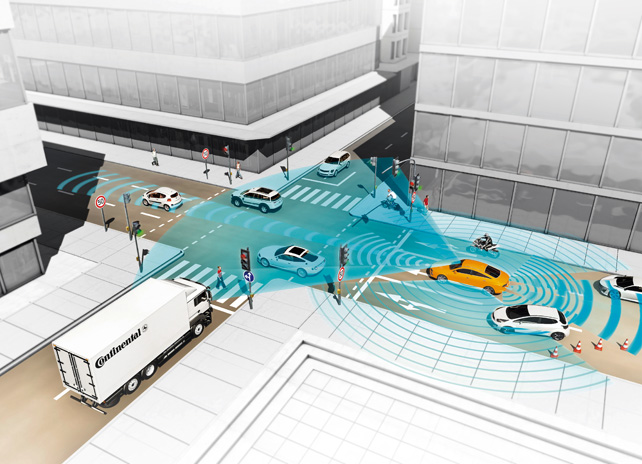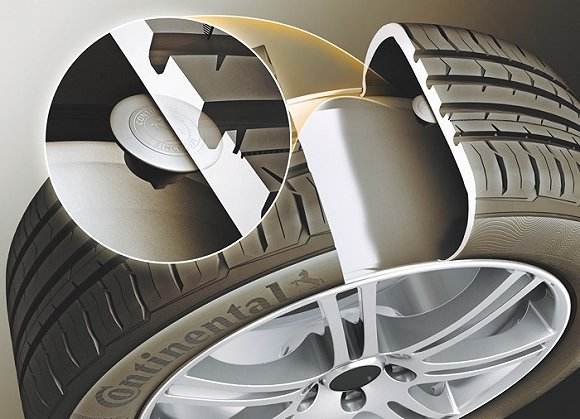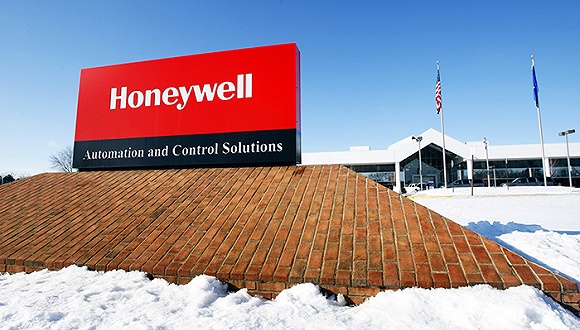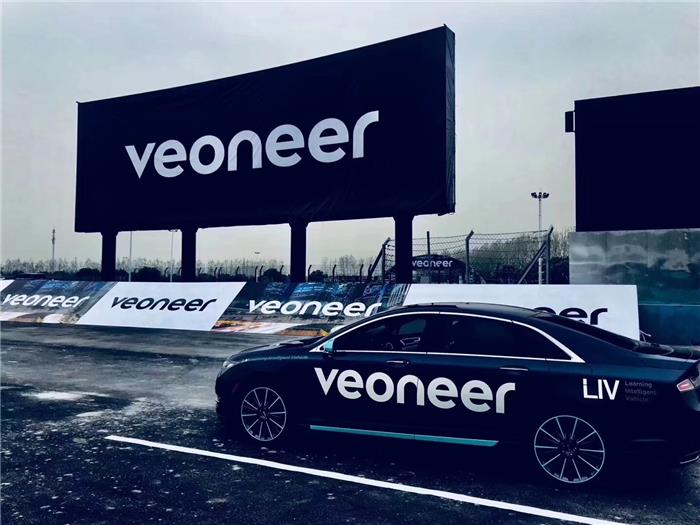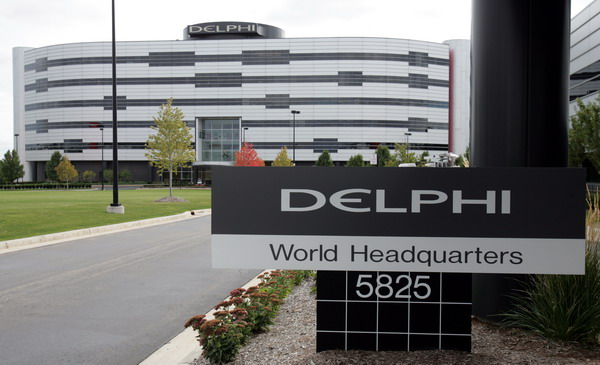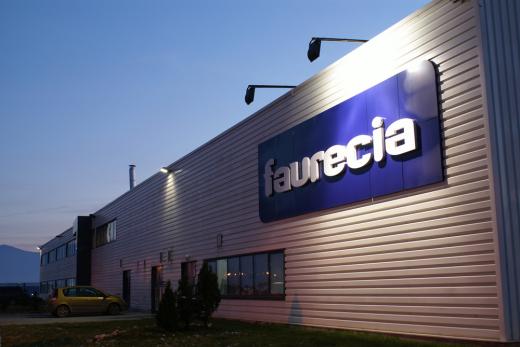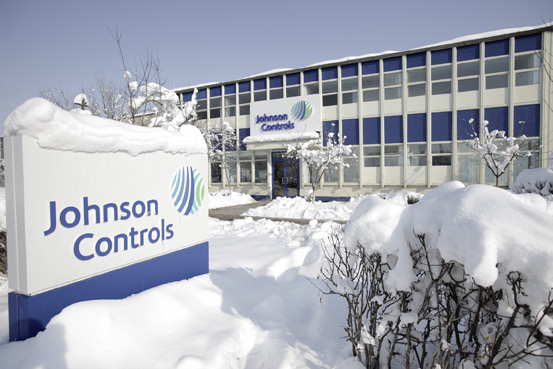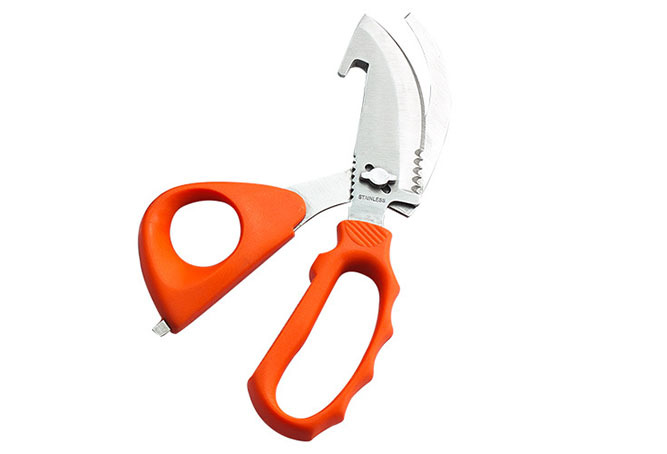Less than a month after the release of the "Top 20 Global Auto Parts Suppliers in 2018", the fourth-ranked German auto parts giant Continental announced the restructuring of its business, which is quite surprising, but also In anticipation. At present, around the electrification, intelligence and sharing, the global automotive industry is ushering in a new round of changes. From the past, focusing on the hardware development of automotive products itself, it has begun to shift to software and mobile travel services. Faced with industry changes, component suppliers rely on traditional business models, and it is increasingly difficult to maintain their competitive advantage in the past, especially the high growth targets on financial statements. Therefore, in the past two years, many large-scale component suppliers have changed their strategies, intending to reshape their competitiveness through splitting, mergers and acquisitions, investment, etc., and join the competition in the next stage of the automobile market. The splitting, as it can give the traditional business full flexibility and independence, prompts the company to focus on new energy trends such as new energy vehicles, smart cars, mobile travel, and gain new profit growth points from the parts giants. The middle is highly respected. Looking at the market, in the past few years, many technology suppliers such as Johnson Controls, Faurecia, Delphi, Autoliv, Honeywell have joined the ranks, and through a re-arrangement, a "self-revolution" ". Strong man broken wrist? Continental Group Business Restructuring The news about the restructuring of Continental's business is not strictly "new" in the strict sense. As early as the beginning of this year, there were foreign media reports that the Continental Group was initially discussing the restructuring of the organizational structure, intending to list some of the higher-margin businesses, such as the tire business, or to merge some of the business with competitors to better Transforming to the field of electrification and autonomous driving. When the relevant person in charge of the Continental Group accepted the media interview, they also indicated that they might make corresponding changes in the future. Therefore, for a long time afterwards, the industry is speculating that Continental Group will split the tire business until the official announcement. According to the announcement of the Continental Group on July 19, the adjustment is mainly based on the brand new “Continental Groupâ€, integrating the original five business units – Chassis & Safety, Powertrain, Body Electronics, Tires. The business unit and the ContiTech division formed three new business segments – Powertrain, Continental Automotive and Continental Rubber. The reporting structure and new name will be used from 2020 onwards. Specifically, in the beginning of 2019, the original powertrain business of Continental Group will become an independent legal entity with a new company name and new management. The new powertrain company will be the body and safety business of the body electronics division of the Continental Group. Unit executive Andreas Wolf is responsible. In addition to the internal combustion engine business, the new company will be responsible for future operations such as hybrid power, electric drive systems and batteries, including the recently announced 48 volt battery joint venture. It is expected that in the middle of 2019, Continental will launch some IPOs for this new powertrain company. At the same time, Continental said that the company does not intend to give up control of the powertrain business in the medium and long term. The current Chassis and Safety Division and the Body Electronics Division will be reorganized by the beginning of 2020 and will be integrated into two new business areas. The new names are autopilot technology and vehicle network technology. These two areas will be new in the future. The establishment of the central automotive research and development department provides support, and the operating results will be included in the new Continental Group Automotive Group. The current tire division and the ContiTech division will retain their independent organizational structure, but the operating results will be attributed to the future Continental Rubber Group, with Continental retaining its core ownership. Continental said that although the company has already prepared for the spin-off of the rubber business and the creation of a new legal entity a few years ago, there is no plan to issue non-controlling interests, such as IPO, but this may be a future. select. It can be said that the adjustment of Continental Group is in line with the current trend of electrification and intelligent transformation of the automotive industry, and at the same time, the company can better balance the development needs of various segments in the future operation. The business is mainly oriented to the electrification revolution. The Continental Group's vehicles focus on the smart car field, while the Continental Group rubber represents the traditional business. In particular, new energy vehicles and smart car-related businesses are reported to have become one of the important driving forces for the strong growth of the Continental Group. At the beginning of this year, when the Continental Group released its fiscal year 2017 performance report, it revealed that Continental's innovative technologies in the field of assisted and automated driving, interconnection and electrification have achieved strong growth in 2017 and exceeded the average level. Because of this, based on the new organizational structure, Continental expects its new automotive business (excluding the powertrain division) to grow from €19 billion in 2017 to around €30 billion in 2023. In addition, it is very important that the independent operation of its business will help the Continental Group to give full play to the advantages of “small boat turning aroundâ€, respond promptly to new technologies and new trends that may emerge in the future, and respond flexibly to respond quickly. Individualized needs of markets, regulators, society and customers. At the same time, it can also optimize resource allocation, avoid internal resource competition, improve product development efficiency, and shorten the time to market for new products. At present, the global auto market is gradually entering a critical moment of transformation and upgrading. At the same time, consumer consumption concepts are becoming more and more personalized, in order to gain more dominance and competitive advantages in the ever-changing market, automakers and zeros. Component companies must accelerate product development and respond to market demands. In particular, with the addition of new forces, many of them have shorter product development cycles than traditional car companies. How to keep up with their R&D pace is also a problem that component suppliers need to consider. At the moment, splitting the large parts and components group and making the core business “lightly loaded†is an effective method. Is there a house? When the parts giant splits As the world's leading supplier of automotive technology, Continental's every move is largely a pre-judgment for the future of the automotive market, and this time is no exception. In the opinion of Continental, the global automotive industry will experience the biggest and most profound changes in its 130 years in the next decade and beyond, and this is why this adjustment has been made. Looking back over the past two years, if the Continental Group generally faces new trends, there are still many parts and components that resolutely endure the spin-off business. On June 15, Honeywell issued a notice saying that the transportation system business will be officially split. The split transportation system business will use “Garrett†as the new company brand and Advancing Motion as the brand slogan. On the business side, Garrett is committed to innovation in turbocharger applications and vehicle software to drive the automotive industry's commitment to the development of the brand, which was officially launched after the third quarter of this year. This split is not an accident. It is reported that as early as October 2017, Honeywell has the intention to split the transportation system business and home and ADI global distribution business, the establishment of two independent companies. Honeywell is facing the risk of devaluation, and Honeywell hopes to help automakers develop better electrified powertrains by leveraging its leading turbocharger technology and relying on its advanced turbocharging technology. The software solution creates a safe and reliable connected car, and seeks new development opportunities and profit growth points for the transportation system business in the deepening electrification and intelligent transformation. As Honeywell President and CEO Darius Adamczyk puts it, “Independent investment decisions help the spin-off business grow rapidly in the growing end market. The streamlined business portfolio will be the company’s endogenous growth. And provide multiple platforms for profit improvement. Honeywell will also gain more leverage and continue to implement effective capital allocation strategies, including strong and prudent M&A plans.†Core businesses such as aviation and special materials are expected to score. Demolition is given more attention and better performance in the later stages. Prior to the stripping of the turbocharged business, Honeywell has sold its automotive sensors, automotive consumer goods, and automotive brake pads in the past few years, demonstrating its determination to transform. Like Honeywell, the spin-off of Swedish auto parts supplier Autoliv is also "planned for a long time." In September 2017, Autoliv said that he would like to split his business into two independent companies – one for traditional passive safety systems and the other for emerging markets such as automotive safety electronics and autonomous driving. Great investment in research and development of new technologies such as autonomous driving, while giving greater operational and profitability to different business segments, and establishing independent brand awareness as soon as possible. After a six-month strategic evaluation and split preparation, Swedish auto parts supplier Autoliv officially announced the results of its business spin-off in the domestic market in April this year. According to official sources, one of the new companies targeting future smart driving technology was named Veoneer, and the company plans to officially launch in the third quarter of 2018. At about the same time, fund investment agency Cevian Capital revealed that they have acquired a 7% stake in Autoliv, worth about $850 million, which shows that the financial market is very supportive of Autoliv. It is worth noting that the entire stripping process will cause $80 million in losses to Autoliv, including organizational restructuring fees and antitrust investigation approval fees. And Autoliv also said that Veoneer initially "not only can not make money, there may be a few percentage points of loss", and it is expected that after the launch of new products in 2019, Veoneer is expected to turn the situation and make a profit. However, from the overall environment, losing money may not only be the “difficult situation†that Veoneer needs to face in the early stage of independence, but all the new companies that are independent from the business system of large parts and components group may encounter embarrassment. Delphi's split is somewhat similar to Autoliv. On December 5, 2017, Delphi announced that it will officially complete the split of its powertrain business unit. In the future, Delphi's remaining business will be renamed Aptiv, and the powertrain business unit will be named Delphi after splitting. Technologies (Delphi Technology), officially listed on the same day as an independent listed company. Specifically, Aptiv consists of the original electronics and security and electronic/electrical architecture business segments, with a focus on autonomous driving technology in the later stages; Delphi Technologies is the original powertrain business unit, with a focus on internal combustion technology, software and control in the future. And electrification to provide a more advanced propulsion system for the car. It can be said that Delphi's spin-off is basically to lay the future along the two routes of autonomous driving system and electric vehicle technology, keeping pace with the development of the industry and giving new vitality to the “old businessâ€. The same is true of Faurecia's split logic. In April 2016, Faurecia and Pio signed a sales and purchase agreement, and Faurecia sold its automotive exterior business and bumper and front-end module business to US Europe for 665 million euros (US$753 million). Accelerate investment in sustainable car value-added technology and enhance operations in the business, including “creating the green future†and “sitting the connected carâ€. According to the current market situation, Faurecia's two strategic priorities also correspond to the two major trends of electrification and intelligence, and because of the earlier decision to make a "house", Faurecia also tasted early. Have the happiness. The funds obtained by Faurecia through this sale, plus the convertible bonds redeemed in January 2016, will almost repay all of its debt. In fiscal 2017, Faurecia's sales reached 17 billion euros, a year-on-year increase of 10.6%. In the first half of 2018, Faurecia sales increased by 10.9%, and operating income increased by 11.1%. Among them, Faurecia's “Smart Life on the Car†technology is known to have received orders worth 1.5 billion euros. By 2025, the technology sales are expected to reach 4.2 billion euros, and the average annual growth rate from 2020 to 2025. It will reach 33% and become an important profit growth point for Faurecia. In comparison, Johnson Controls's divestiture of the automotive business is slightly different. On January 12, 2016, Johnson Controls Co., Ltd. issued a statement saying that the company's new car seat and interior business company will be named Adient and will be listed separately in October. On October 31 of the same year, Adient announced that it had completed the spin-off from Johnson Controls and officially became an independent company with a publicly traded transaction. For the reasons for the split, Johnson Controls believes that the auto industry has a cyclical and thin profit, so it is unwilling to continue to invest heavily in the auto business, and choose to split, on the one hand to avoid the cyclical fluctuations and huge investment demand of the auto industry. On the other hand, the company's cost structure is more competitive, focusing on the development of higher-margin businesses. At present, Jiangsen’s “split logic†is actually reflected in the splitting of many other parts companies, but compared to the divestiture of weak profit business, in the context of the current auto industry transformation, more companies The transformation is aimed at the trend of electrification and intelligence, because in their view, these new technologies will have greater profit margins and higher profit returns. The logic behind "demolition" and "buy" In fact, in order to better participate in the electrification, intelligence and mobile travel revolution in the automotive industry, the movements of component suppliers are not limited to dismantling and dismantling, but also to buy and buy. Especially for those core technologies that companies do not have or that are difficult to catch up with competitors in a short period of time, the parts giants choose to invest in mergers and acquisitions. Taking Continental Group as an example, in terms of intelligent and networked layout, the company has carried out a series of independent research and has achieved remarkable results. It is also keen on mergers and acquisitions to strengthen new technology reserves and further enrich the “skills poolâ€. For example, in 2016, Continental acquired Advanced Scientific Concepts' 3D Flash laser radar business to enhance its automotive sensor technology and further enrich Continental's ADAS product line by integrating this technology into automotive peripheral sensor groups. For highly automated or fully automated driving. According to Continental's plan, the company will develop mature lidar sensing technology and mass production in 2020 to cope with the huge demand of the upcoming autopilot market. In 2017, Continental acquired a minority stake in EasyMile SAS, a French company that develops driverless electric buses, and worked closely with EasyMile in the areas of environmental sensors, braking systems and driving safety technologies to accelerate its autonomous driving research and development. It is reported that Continental's unmanned technology development platform "CUbe" is built on EasyMile's EZ10, and many of the Continental Group's complex questions about autonomous driving are also studied in this real-world scenario. In early 2018, Continental announced the acquisition of a 5% indirect shareholding in HERE Technologies, the world's leading provider of map and location services, to achieve further profitable growth in travel services and automated driving. It can be found that both laser radar and map technology are indispensable key technologies for autonomous vehicles. Continental's heavy investment has fully demonstrated the company's determination to drive and drive in the future. The same is true of Anbofu. Due to the early observation and optimistic about the development of autonomous driving, the company has carried out frequent acquisition cooperation in the field of intelligence and interconnection in the past few years. In May 2015, Anbofu acquired Ottomatika, an active safety and autonomous driving software company. In December of the same year, Amberford acquired Hellman Taitong for $1.67 billion and merged the latter into Delphi's electronic/electrical architecture system business unit. To strengthen its strength in the field of car networking and consolidate its position in the electrical systems market. In October 2017, Ampford acquired autopilot startup nuTonomy for $450 million, more than doubling its autopilot team and increasing access to new customers and new markets in emerging mobile travel, accelerating Delphi Commercialization in the field of autonomous driving technology and self-driving on-demand travelwear. In June 2018, Amberford announced that it had completed the acquisition of KUM, a manufacturer of advanced connector and cable management systems. The latter products and solutions are widely used in the automotive sector for harsh environments; in July, Anbofu said A final agreement has been reached on the acquisition of Winchester Interconnect for $650 million. The specific transaction is expected to be completed by the end of 2018... Summarizing the acquisitions of Amberford in the past two years, the company's focus in the field of autonomous driving is also focused on the core technologies of laser radar, software platform architecture, software, algorithms, data acquisition / processing / transmission, remote upgrade and repair. And for the future development of autonomous driving, Anbofu's thinking is also very clear - dedicated to the "brain" and "nerve system" of the car, and the integration of "brain" and "neural system" to accelerate the promotion of the era of automatic driving arrival. With the increasing research and development of autopilots by automakers, parts and technology companies, and the maturity of technology, autopilot has entered a critical moment before mass production. It can be said that every player in the field now hopes that he can Mass production of this technology as soon as possible. Therefore, in order to seize the commanding heights of automatic driving commercialization and maintain a competitive advantage in the later stage, all major players are carrying out technical reserves and mastering as many core technologies as possible through independent research and development and mergers and acquisitions. However, from another perspective, the company is not the bigger the better, especially for many large component suppliers. In addition to the automotive business, there are many solutions for other fields, which leads to the company in the operation management process. It's easy to distract and it's hard to make every business segment comprehensive. Due to the large size of the company and the complicated operation process, these “big Mac†companies often have difficulty responding in time to new development trends or industry changes. Instead, they will miss opportunities due to complex management systems and generate a large number of them. Waste of resources. Autopilots and new energy vehicles are revolutionary technologies for the automotive industry. They need companies to spend a lot of time, money and energy on them, and even take the courage and determination of a strong man to break the wrist when necessary. Self-revolution. At this time, if the parts and components companies still maintain the form of "big behemoths" in the past, it is difficult to continue to occupy a favorable position in the increasingly fierce market competition. Therefore, in the past two years, many large-scale component companies have begun to change their strategies. Splitting, mergers and acquisitions, and cooperation have taken a multi-pronged approach to reshape their competitive advantages to ensure that they will not sink in the wave of electrification and intelligent transformation of the automotive industry. It is worth noting that at the beginning of this year, when Geshi Auto reporter interviewed a senior member of a world-renowned component supplier, the other party said that in the context of the rapid transformation and upgrading of the current auto industry, any large parts and components enterprises may eventually be demolished. The road to division. At present, the Continental Group can confirm its prediction very well. Who knows who the next "this curse" giant will be? Six Wheel Trolley,6 Wheel Shopping Trolly,Six Wheel Hand Trolley,Foldable Steel Six Wheel Hand Trolley Dalian CS Logistics Technology Co., Ltd , https://www.dlcsems.com